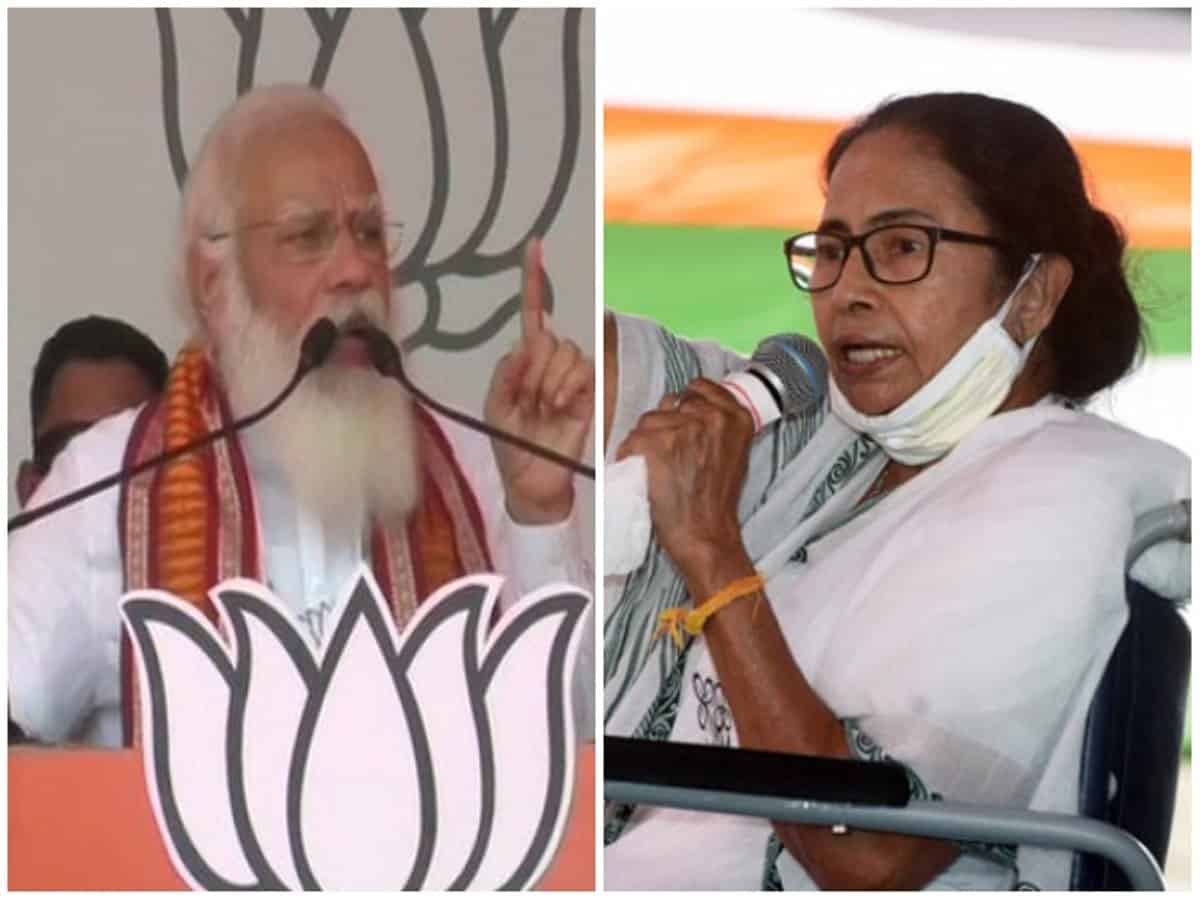Agartala: Tripura felt on edge through 2021 as it made news headlines for bitterly fought elections and communal clashes amid the raging COVID-19 pandemic.
The ruling BJP, which tasted defeat in the elections to Tripura Tribal Areas Autonomous District Council (TTAADC) earlier in the year, won a resounding victory in the civic polls, pulverising the TMC which made a gallant attempt to make inroads into the now saffron citadel.
The saffron party bagged 329 of the 334 seats in the urban civic bodies of the state, where it was hardly a force to reckon with before the 2018 Assembly polls.
The CPI(M), which was dethroned by the BJP in the 2018 assembly polls after an uninterrupted rule of 25 years, ended up with just an 18 per cent vote share.
The TMC, which was trying to gain a foothold in the northeastern state, buoyed by its assembly poll victory in the neighbouring West Bengal, managed to garner over 16 per cent of the votes polled in the civic elections, having put up a creditable fight in the face of political violence and alleged intimidation.
Several TMC leaders were taken into custody by police for reasons ranging from Covid protocol violations to breach of peace. Notable among them was TMC youth wing leader Saayoni Ghosh, who was charged with attempt to murder and promoting enmity.
The Mamata Banerjee-led party, which has been accused of unleashing violence in West Bengal, was at the receiving end in Tripura where it levelled similar allegations against the BJP.
A string of incidents of violence rocked Tripura during the campaign, forcing the Supreme Court to intervene. Taking cognisance of a petition that sought protection for TMC members, the Supreme Court directed the Tripura government to ensure political parties are not prevented from conducting programmes in a peaceful manner.
In the tribal council polls, the newly formed TIPRA, led by former state Congress president and scion of Tripura’s erstwhile royal family Pradyot Kishore Deb Barman, clinched 18 of the 28 seats, leaving nine seats for the BJP and one for an Independent.
In early part of the year, the second wave of the COVID-19 pandemic overwhelmed the small Northeastern state. The administration tried to fortify the health infrastructure and speed up the vaccination drive amid the rising number of infections.
The government announced free education and other assistance for children who lost their parents to the infection.
Octogenarian Purna Laxmi, a resident of a remote hamlet in West Tripura, became the first person in the state to be administered an anti-Covid vaccine in June. Since then, roughly 88 per cent of the eligible population has been inoculated, according to State Immunisation officer Dr Supratim Biswas.
During the year, Chief Minister Biplab Deb, often in the news for shooting from the hip, courted controversy when he said government officials need not worry about contempt of court cases as he controlled the police and it wasn’t easy to send someone to jail. The chief minister, in the eye of a storm over his remark, later said his statement was twisted out of context.
What came as a welcome move was the promise of Rs 1,300 crore assistance by Union Finance Minister Nirmala Sitharaman for the sustainable development of Tripura’s tribal areas. Sitharaman inaugurated 11 projects during her visit to the state in August.
The northeastern state hogged the limelight in the second half of 2021 as communal clashes in Bangladesh provoked a backlash in the state, where places of worship of Muslims were desecrated.
Restrictions were imposed on public movement in the Panisagar and Dharmanagar areas of Tripura to avoid further disturbances. Security was beefed up across the state and the government appealed to people to maintain peace.
Two women journalists, who had covered the violence and vandalisation for a Delhi-based news channel, were arrested for alleged criminal conspiracy and spreading communal hatred.
A magisterial court in Tripura, which granted them bail, said keeping the two under detention would be extreme curtailment of personal liberty . The Supreme Court later stayed the criminal proceedings against them.

